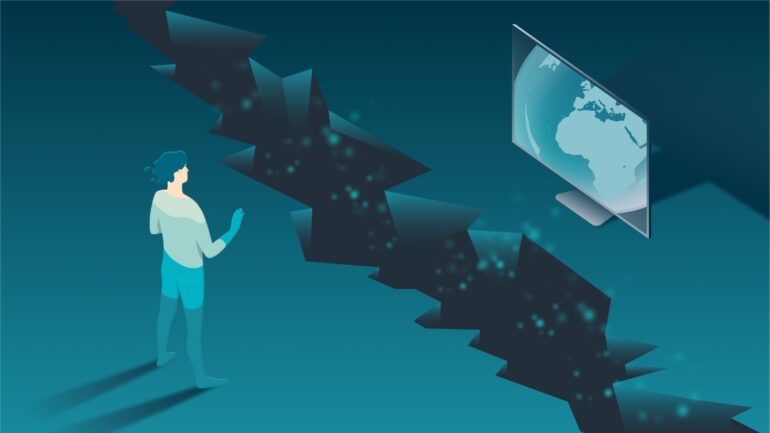Surfshark recently released an internet divide study, which is based on data from the annual digital wellbeing index (DQL 2022). The study reveals that lower-income countries (including most of Africa) have to work 3 times more than higher-income countries for 3 times slower internet. In many of these countries, the internet is so slow that not even video calls are possible. Such internet inequality, combined with today’s inflation rates and political uncertainties, is taking Africans on a downward spiral of economic hardship.
Surfshark’s analysis highlights that Africa experiences the sharpest internet divide of all continents, with just 55% of the population having access to the internet (compared to 85% in Oceania). Even so, those with access experience deep inequalities in internet speed and affordability. As of 2022, the internet in Africa is 83% less affordable than in Oceania (the region with the most affordable internet), and the gap between these two regions keeps expanding each year.
Why the internet divide is a problem for Africans
According to Surfshark’s Lead Researcher Agneska Sablovskaja, “People who can’t access the internet are cut off from the digital opportunities that people from higher-income countries have. Without internet access, people can’t study or work online, and they can’t grow their economy with digital exports”.
“The internet is also very slow in many African countries. Even if people can afford the internet, they still face limitations in what they can do. For instance, low internet speeds often make it very difficult to make video calls.”, says Sablovskaja.
Mobile internet divide
People from lower-income countries (including most of Africa) have to work approximately 11 minutes more than higher-income countries to afford 1GB of mobile internet that is 49 Mbps slower:
- Lower-income countries work 17 minutes for 1 GB of mobile internet with 26 Mbps.
- Higher-income countries work 6 minutes for 1 GB of mobile internet with 75 Mbps.
26 Mbps — the average mobile internet speed in lower-income countries — is 3 times slower than in higher-income countries and creates limitations in what people can do online. For instance, 26 Mbps may be enough for streaming a movie, but it’s not enough for a video call (which requires 50 Mbps).
Broadband internet divide
The situation with broadband internet is no better – lower-income countries work 8 hours more than higher-income countries to afford a fixed broadband plan that is 83 Mbps slower:
- Lower-income countries work 12 hours for broadband internet with 34.4 Mbps.
- Higher-income countries work 4 hours for broadband internet with 117.8 Mbps.
In higher-income countries, broadband internet tends to be much faster than mobile. But in lower-income countries, broadband internet is just 34 Mbps on average — barely any faster than mobile.
Countries that experience the sharpest internet divide
The lowest-income countries in the DQL index, Ethiopia (115th in DQL) and Mali (102nd in DQL) are also the income group that experiences the sharpest internet divide.
People from these countries work 51 minutes (which is 14 times more than the highest-income countries) for mobile internet which is 68 Mbps slower. Broadband internet in these lowest-income countries is just 19 Mbps on average but is 8 times less affordable. The difficult political climates in these countries make internet access especially important — without it, the world is left in the dark about the issues in these countries.
On a more positive note, South Africa fares the best in Africa in internet accessibility, with the most affordable and highest-quality internet.
For more information on Surfshark’s internet divide study, please visit this link: https://surfshark.com/dql2022/internetdivide
Read next: Here’s what you need to know about rain 5G internet in Cape Town


